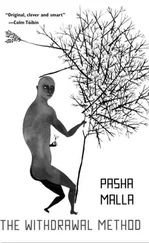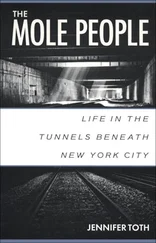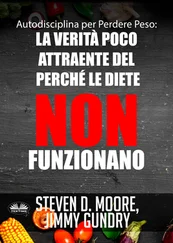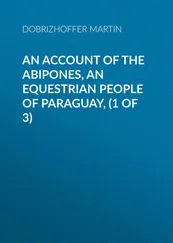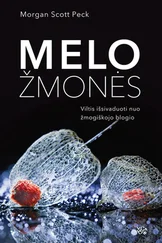At Municipal Works’ executive entrance the Mayor keyed in her code. The doors opened, she paddled down a long, empty hallway, out into a marble-pillared rotunda, surveillance cameras blinked red lights, past the security guard, Betty, to the elevator at the base of the Podesta Tower. And then she was lifted into the sky: the island swelled glittering to its edges, where it ceded abruptly to the lake.
Released one hundred storeys up, the Mayor flicked on the lights and rolled out onto the viewing deck, a bubble enclosed by glass on all sides that turned, languidly, clockwise. And though the viewing deck boasted the best and most comprehensive panoramas of the city, at this hour, with the lights on inside, the Mayor saw none of it: not the sleeping city, not the night sky, not the polished coin of the moon, not, as the viewing deck rotated south, the vast emptiness of the water, a second sky hollowed out beneath the sky. Everything was lost in the room’s reflection.
And at the heart of this reflection the Mayor saw herself, spectral and translucent, floating out there in space, a thousand feet above downtown. The dark shapes of her eyes hovered in a gaunt face, every wrinkle a gulley, her hair a tussled silver nest. She stared into the eyes out there, on the other side of the glass, her eyes, but couldn’t see her own eyes: they were just absence, two holes punched into the night.
Had she left the lights off, as the deck swivelled north, then east, she would have been treated to a straight shot over People Park, and across it, the tower of the Grand Saloon Hotel, the clockface a sort of second moon, the hands at right angles where the illustrationist had frozen them that morning. On the roof’s edge sat his helicopter, nosing out over the brightly lit penthouse suite. The balcony doors had been cast open, the curtains billowed in the A/C’s steady draft. And with each ruffle they revealed the illustrationist atop the sheets in his tracksuit, fast asleep.
He needed cold air to sleep and light, lots of light. The penthouse was all marble and polished dark wood and brass, everything gleamed in the brilliance sprinkled down from a row of crystal chandeliers. Atop the nightstand was the CityGuide that lived in every guest’s bedside drawer, bookmarked with a feather four pages from the end.
Raven’s position atop the bed’s black silk sheets was perfect symmetry: on his back, arms at his sides, legs a fist apart, face to the ceiling. His baldhead gleamed. His tracksuit was velvety. His eyes were open, yet he was sleeping, this was how he slept, and his eyes seemed to have no irises but just pupils swollen into pits, and his body produced no movement or sound, his chest did not rise and fall, there was not even a hiss of breath, and anyone happening upon this person would have assumed him dead.
The illustrationist seemed to stare upward, but his brain registered nothing of the outside world, only his dreams — if he had dreams. But Raven did not dream.
And when he had called them together, he spake as follows —
— Plato, Critias


 HEY WOULD ALWAYS remember the day their mama stopped believing in God, a hot August Sunday when Sam and Adine were seven. With the tower bells ringing the entire congregation was set free into the Cathedral parking lot, Sam and Adine held their mama’s hands, her grip went tight when they reached their parking spot: no car, just a sprinkling of what appeared to be beach glass. In her nice blue dress their mama sank down onto the curb, face in her hands. All around the bells chimed joy and past them flowed people in their Sunday best, smiling and saved. No one stopped to say anything or help.
HEY WOULD ALWAYS remember the day their mama stopped believing in God, a hot August Sunday when Sam and Adine were seven. With the tower bells ringing the entire congregation was set free into the Cathedral parking lot, Sam and Adine held their mama’s hands, her grip went tight when they reached their parking spot: no car, just a sprinkling of what appeared to be beach glass. In her nice blue dress their mama sank down onto the curb, face in her hands. All around the bells chimed joy and past them flowed people in their Sunday best, smiling and saved. No one stopped to say anything or help.
Once everyone disappeared and the bells went quiet their mama stood and without a word started walking west, into the ruins of Lakeview Homes. Sam and Adine trailed behind her exchanging looks: What was happening, where was their car? They followed their mama in silence through the wreckage of buildings half-destroyed by diggers abandoned for the weekend, sitting there like the shells of larval bugs, and the spindly stalks of apple-tree saplings lined up along the fence that penned in the wrecking site.
The sun burned above and the asphalt of South Throughline burned below and the churned-up earth burned from somewhere deeper. The heat was brackish, stifling, they could taste the tarry smoke of it in their mouths. Their mama stopped at the fence: beyond it was the dug-out pit where A-Block 100 had once stood. All the A-Block residents had already been packed up and bussed across town, trucks had taken their things. As the demolition swept north into B- and C-Blocks, more and more people would be shifted to what people were calling the Zone, the westend neighbourhoods north of Lower Olde Towne. And when the bulldozers reached H-Block Sam and Adine and their mama would have to move too.
A Park Project diagram mounted on the fence showed how what had been A-Block would become a forest of poplar trees that stretched all the way to a campground at the lakeshore, where there would be a beach. Centre Throughline would be moved underground, tunnelled beneath the park all the way from the southside to the island’s northern shore, overtop of which would be a field and a pond. It was impossible to imagine what was pictured ever becoming real: Lakeview Homes looked as though a meteor had struck and incinerated its entire southern half, how could anything grow here, it was just a dead empty hole or a giant mouth gaping wider and wider until it swallowed the whole complex down.
Their mama took off her pumps and with one in each hand wiped her forehead with her sleeve and threw her shoes over the fence, one then the next plunging birdlike down into the shadows. The back of her blue dress was dark with sweat. Okay, she said, and barefoot continued home along what had once been sidewalks and now was just dirt. Sam and Adine followed her up Centre Throughline, north through B-Block and C- and D-, west along North Throughline into the 50s, then north again to their unit, H-54, wedged amid a row of identical units, where the screendoor smacked closed behind her.
If you had your car stolen you were supposed to call the police, yet their mama did not. She sat in the living room smoking cigarettes with the front curtains drawn until the matching ashtrays Sam and Adine had made her at school overflowed. After church their mama always fixed lunch but today there was no lunch. She got up only to take down the cross that lived above the kitchen sink and dump it in the trash.
From that day on their mama became a pinched-in version of herself: smaller, and taut, and when she talked her mouth barely opened. It seemed something was hiding inside her that she couldn’t let escape. Though sometimes whatever it was would claw to the surface and come stabbing out in screams and slaps. When she found Sam inside the living room armoire dismantling her hairdryer he cried not because it hurt to be hit, but because of the surprise.
By the time school started in September the demolition had swept into C-Block and everything changed. Their mama switched to nightshifts at the factory, so there was no longer time in the evenings, she said, to cook or say Grace. Instead she heated TV dinners from the freezer, slid the trays onto the kitchen table at her kids. Eat, she said, putting on her coat as they peeled off the tinfoil covers and folded the warm edges into the still-frozen centres. While Connie was at work Sam and Adine would watch TV until they couldn’t keep their eyes open, and in the mornings she’d often come home to them still sprawled head-to-toe on the couch. Go to school, she said then, and she would go to bed, and they would go to school.
Читать дальше
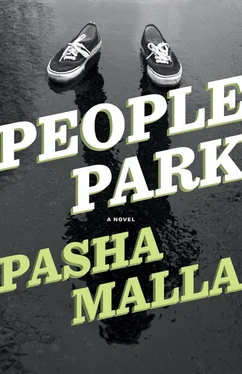


 HEY WOULD ALWAYS remember the day their mama stopped believing in God, a hot August Sunday when Sam and Adine were seven. With the tower bells ringing the entire congregation was set free into the Cathedral parking lot, Sam and Adine held their mama’s hands, her grip went tight when they reached their parking spot: no car, just a sprinkling of what appeared to be beach glass. In her nice blue dress their mama sank down onto the curb, face in her hands. All around the bells chimed joy and past them flowed people in their Sunday best, smiling and saved. No one stopped to say anything or help.
HEY WOULD ALWAYS remember the day their mama stopped believing in God, a hot August Sunday when Sam and Adine were seven. With the tower bells ringing the entire congregation was set free into the Cathedral parking lot, Sam and Adine held their mama’s hands, her grip went tight when they reached their parking spot: no car, just a sprinkling of what appeared to be beach glass. In her nice blue dress their mama sank down onto the curb, face in her hands. All around the bells chimed joy and past them flowed people in their Sunday best, smiling and saved. No one stopped to say anything or help.